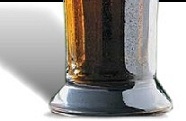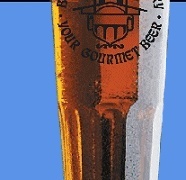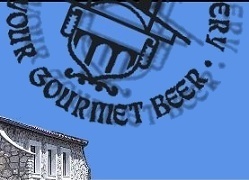
Beer is healthy; it can block some kinds of infection
Beer drinking is effective against inflammatory processes and even some chronic ailments. As demonstrated by the researchers from the Faculty of Medicine at the Insbruck University in their study, the tests with the blood cells proved that the beer is able to block some infections and chronic ailments, too.
The substances contained in the barley extracts probably have a similar effect on the organism as red wine, or green and black tea which are all known as healthy. “This effect is medically recognized especially when treating the heart diseases,” reminds the team of researchers led by Dietmar Fuchs, chemical biologist.
The scientists emphasize that the beer drinking itself does not necessarily include consumption of alcoholic drink, as the positive effect of the barley extract is proved even when the drink is exclusive of any alcohol. It also depends on the brand of the beverage being drunk.
The authors of the study assure that the beer obviously increases a production of the serotonin, known as a hormone of happiness, which plays a crucial role in the man’s moods, such as joy, anxiety, dreams, pain, and even in sexual behaviours and eating habits.
The beer contains, among others, a large number of vitamins and minerals (calcium, phosphorus, magnesium, potassium, sodium and chlorides). The vitamins include especially the B line (B1 - Thiamine, B2 - Riboflavin, B6 - Pyridoxine and folacin). The folic acid content is appreciated especially by women. This trace element is very important for the women in the reproduction age who desire to become pregnant. This acid deficiency provably causes a higher risk (as much as by 50%) of the development defects of the newborns such as the cleft palate and spondyloschisis.
A small amount of beer may lead to weight reducing
Another element which transfers from the brewer’s yeasts to beer is rare chromium which can be less and less found in common sustenance. This trace element supports the insulin hormone activity, which regulates the level of saccharides in the blood. If there is a chromium deficiency, the saccharide level may be unsteady which leads to “irresistible” tastes for sweets. This results in the excess weight which cannot be ridden roughshod over as reliably as by enriching the sustenance with chromium.
The beer has not as high energy value as one thinks. A half of litre glass (approx. one pint) of the ten-degree beer contains in average around 200 kcal, whilst 500 millilitres of the fruit juice or milk has approximately 250 kcal and half of litre of wine even 300 kcal. A share of energy from saccharides on the total energetic content of the beer is 60%. The beer contains both monosaccharides which are burnt fast, and the polysaccharides, so called dextrines, from which the energy is still released a long time after ingestion. The beer therefore provides energy supply not only immediately after drinking, but also later on. The saccharides do not accumulate in the organism, they are uniformly burnt and do not turn into the feared fat.
From the energetic point of view, a small amount of beer is not a hindrance, as during degradation of alcohol the free radicals are created due to the effect of the dehydrogenase enzyme. These radicals then enter the fat degradation processes and thus quicken the use of their energy instead of the fat deposition.
The study also confirms that drinking of beer also has sedative effects on the drinker. When drunk before sleeping, the beer even works as a natural tranquillizer.
The British professor Jonathan Powel has proved that the beer contains a natural silicone polymer which, when consumed in a limited amount, reinforces the bones and prevents from osteoporosis. The Austrian professor Manfred Wanzl has also discovered the substances in beer which reduce the risk of the Alzheimer disease development, while Jean-Michel Lecerf from the Pasteur´s Institute, France, has found out that the barley and hop, both present in beer, significantly support a healthy regimen. According to Norbert Frank from the university in Heidelberg, Germany, the hop works as an active substance preventing from the carcinoma development.
Professor Arne Astrup from Copenhagen also proved on the graphs that light drinking of beer and other fermented beverages prevents from the risk of heart attack. Ascensión Marcos, Spanish professor, has told about so far promising results of the research whose aim is to prove that the substances contained in beer help to strengthen the immune system of a human body.






